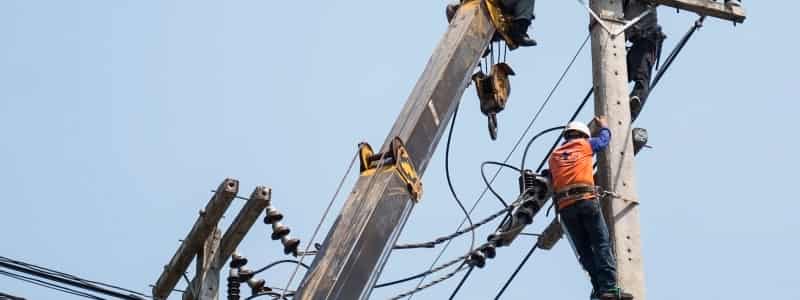Communications and legal business professional with experience working in top-tier global law firms, high-growth startups, and legal technology across APAC, the UK and US. Currently the B2B Relationship Manager at Pogust Goodhead, a global class actions law firm specialising in ESG, consumer, competition and human rights law with offices across the United Kingdom, Europe, United States, and Latin America. Formerly a practising NSW lawyer and Content Manager at Lawpath.
Although the electrical industry has experienced rapid growth in recent times there remains a relatively scarce supply of electricians. Subsequently, there is no greater time than now to enter the electrical industry and for many, starting off solo is the best way to start an Electrical Business.
Regardless of if you are completely new to the electrical industry, an experienced electrician or an overseas skilled electrician, below are some handy tips if you want to start an Electrical Business. If you’re also wondering what other types of businesses you could start, you can check out our comprehensive list of business ideas.
1. Familiarise yourself with the Rules
Having a good working knowledge of industrial rules and regulations is important before you start any new business. This is particularly crucial when it comes to the electrical industry, noting the risks involved in the trade and the importance of the work you are doing.
Electrical wiring work is a technical and regulated sector in Australia and you must have a valid electrician licence to start a business in this field. The Electrical Regulatory Authorities Council (ERAC) is responsible for coordinating electrical work in Australia and New Zealand. You will also need to contact the designated regulators in the specific state or territory you wish to operate in to obtain the relevant qualifications to start your Electrical Business.
For example in New South Wales, if you will be undertaking the manual labour of installing, repairing, altering, removing or adding to an electrical installation or the supervision of that work, you must hold a valid qualification or licence. There are several pathways to become qualified, the details of which can be found on the Fair Trade NSW website. If you are a qualified overseas electrician, you will need to have your skills and/or qualifications assessed by the Trades Recognition Services (TRS) to determine whether you are eligible to work in the Australian electrical sector.
2. Register your Business
Always register your business. Although this may be the most obvious step, it is one that cannot be neglected and is your main port of call. Depending on your business structure, you may need to set up a company or register trademarks for your Electrical Business. There are generally three kinds of business structure which your business could fall under, being a sole trader, partnership, or a company. Choosing the right business structure may be the most important decision you make in the initial stages of starting your business as it will affect your tax assessment, your income and your personal liability if anything goes wrong.
3. Always take out Insurance
It is always a good idea to have adequate protection for your business through having suitable insurance. There are various kinds of insurance policies to cover different business needs. Some of the more common types of insurance for small businesses include indemnity insurance, contract works insurance, and public liability insurance. If you’re not sure what kind of insurance you will require, you should consult an insurance lawyer.
4. Stay on top of Administration and Housekeeping
By now, you will have completed all the fundamental steps to get your business up and running, but you will need to take steps to keep it that way. In order to grow your business and drive its success, you will need to be able to manage a lot of paperwork and documentation. Running a business never just requires you to have practical skills in your field, it also requires management, organisational and communication skills. For example, if you intend on hiring staff, employment and sub-contractor agreements will be needed.
It will also be helpful for you to manage your files in a centralised system, and there are many software programs which can help make this a seamless process.
5. Monitor and Review your Processes
Starting a new business is not a difficult process, but in this case, you will need to ensure that you are adhering to the regulations and requirements involved in trading in the electrical sector. You must continually monitor and review your processes and systems to ensure that you are meeting (and hopefully, exceeding!) market and legal standards. In this sense, it is likely that you will require a small business lawyer to advise you on your processes, compliance and assist you in growing your business.
When starting an electrical business, it is imperative that you know the ins and outs of the electrical sector and what is required to trade legally. Beyond complying with the law, you want to make sure your business is safe for yourself, your customers and any workers you might employ.







